Introduction: A Paradigm Shift in Human Existence
The greatest danger in times of turbulence is not the turbulence; it is to act with yesterday's logic. – Peter Drucker. This quote captures the challenge we face today as we stand on the brink of a monumental shift in how we view work and its role in our lives. Just as the original Renaissance ushered in new ideas that shattered old molds, we are facing a Second Renaissance. It beckons us to rethink our relationship with work and life altogether, freeing ourselves from the chains of traditional employment to explore a more fulfilling existence.
As we contemplate the prospects of a world without the daily grind, let's ask ourselves: What if our true potential lies not in our ability to toil for a paycheck, but in our capacity to create, innovate, and connect? Imagine engaging in work that puts fire in your belly rather than merely paying the bills. We’re not just talking about a cultural shift; we’re diving into the realm of possibility where humanity's creative juices can flow without bureaucratic blockades.
In this context, many thinkers have pondered the implications of freeing ourselves from obligatory work. Authors like Karl Marx discussed the alienation caused by work. Philosophers like Aristotle debated the nature of happiness in human life. Modern luminaries like Malcolm Gladwell have explored how collaborative genius can be harnessed when individuals are not burdened by monotonous labor. Together, these voices echo a common theme: unshackling ourselves from outdated systems opens the door to unprecedented human potential.
The Second Renaissance envisions a future brimming with creativity, collaboration, and community. Welcome to a brave new world where our passions become our professions and our dreams overshadow mere survival.
1. Historical Context: The Parallels of Renaissance Eras
The historical parallels between the original Renaissance and our potential Second Renaissance lay the groundwork for understanding the transformations that may unfold in society:
1.1 Lessons from the Original Renaissance
The original Renaissance, which spanned from the 14th to the 17th century, was not merely an artistic movement but an explosion of new ideas and ways of thinking. With figures like Leonardo da Vinci and Michelangelo leading the charge, this era taught us that the pursuit of knowledge and creativity fuels societal advancement. It liberated thinkers and artists from the confines of medieval thought, paving the way for innovation that still inspires us today.
1.2 The Role of Innovation and Technology
Technological advancements were the driving force behind the Renaissance. The invention of the printing press by Johannes Gutenberg allowed for the rapid spread of new ideas, fundamentally altering how knowledge was shared. Today, we find ourselves at a similar crossroads. The rise of AI and automation is set to revolutionize the job market, raising questions about the role of work in our lives. Instead of viewing technology as a threat, we can see it as a tool that liberates us from monotonous tasks, empowering us to focus on what truly matters: creative expression, human connection, and personal development.
2. Socioeconomic Impacts of a Post-Work World
As we dive deeper into the concept of a post-work world, let’s explore how this shift could flip our current socioeconomic structures upside down. With a dash of creativity and a sprinkle of imagination, we can envision a society that's not just surviving, but thriving. Remember, the world doesn’t need more desk jockeys; it needs innovators!
2.1 Redefining Value: Beyond Capitalism
In a society where traditional roles are flipped, we must ask ourselves: what happens to value? Perhaps it’s time to rethink our obsession with money and material wealth. What if we embraced ideas like Universal Basic Income (UBI)? UBI aims to provide all individuals with a regular, unconditional sum of money, no strings attached. This could allow people to pursue creative ventures or volunteer in their communities without worrying about their next meal. Imagine being able to paint that masterpiece or start a community garden just for the love of it, rather than for a paycheck!
2.2 Emergence of New Communities and Collaborations
Picture a world where your neighbor is not just a face but a partner in a community project. In a post-work economy, people can unite based on shared passions and purposes instead of workplace hierarchies. Communities could blossom like wildflowers in spring, as individuals collaborate to spur innovation and tackle issues together. Imagine coming together with your local community to launch a sustainable farm or a tech hub. The future could be a tapestry woven with the nerve-tingling excitement of teamwork, rather than stale competition!
3. The Psychological Transformation of Humanity
Now, let's chat about how a post-work world could reshape our minds and spirits. Work has often acted like a ball and chain for many of us. But what if we broke free? What if we were allowed to explore who we are outside of our daily grind? Spoiler alert: it could be pretty amazing!
3.1 Enhanced Creativity and Personal Development
In a life free from the daily grind, creativity would flourish like a garden in full bloom. Without the time constraint imposed by traditional jobs, people can explore their passions deeply and genuinely. Want to write that novel? Go for it! Interested in learning the ukulele? Pick it up! The possibilities are endless. Studies show that engaging in creative pursuits not only brings joy but also enhances problem-solving skills and innovation. So, grab your paintbrush, folks; the world is your canvas!
3.2 Mental Health and Well-being Benefits
More than just creativity, a break from rigid work schedules can lead to significant mental health improvements. Research from the World Health Organization indicates that reduced stress levels and increased life satisfaction can result when individuals feel less pressure to conform to traditional employment. Less stress means more laughter, more smiles, and more time to enjoy life. Who wouldn’t want to replace work-related anxiety with zen-like serenity?
4. The Role of Education in the Second Renaissance
This section discusses education's evolution in the context of a post-work society. As traditional jobs start to disappear, our approach to education needs to change, too. We should focus more on nurturing curiosity and creativity in people rather than just training them for specific jobs. This new approach could lead to a society filled with innovative thinkers ready to tackle the challenges of tomorrow.
4.1 Lifelong Learning Paradigms
In a post-work world, education will shift from a one-size-fits-all approach to embracing lifelong learning. This means that instead of finishing school and entering the workforce, individuals will continuously seek knowledge and skills throughout their lives. Here are some ideas for how this could look:
- Flexible Learning Paths: People could tailor their education to fit their interests, allowing for personalized learning experiences.
- Online Courses: Platforms like Coursera and edX already make education accessible to anyone with an internet connection.
- Community Learning Centers: Local centers could offer workshops and classes on various topics, fostering collaboration among neighbors and encouraging skill sharing.
This focus on continuous learning could help individuals develop new interests and passions, keeping their minds active and engaged. With communities working together, the learning experience transforms into an enriching and supportive journey.
4.2 Collaboration Over Competition
As we envision a new educational landscape, the idea of collaboration becomes more important than ever. Here’s how education can be redesigned to prioritize teamwork and community engagement:
- Group Projects: Schools can implement projects that require students to work together, teaching them valuable skills like communication and conflict resolution.
- Peer Mentoring: Older students could help younger peers, fostering relationships and building a supportive learning culture.
- Joint Ventures with Local Businesses: Schools can partner with local businesses to create hands-on learning experiences that benefit both students and the community.
These collaborative efforts can lead to stronger connections among community members while nurturing skills that are essential in a rapidly changing world.
5. Cultural Rebirth: Art, Philosophy, and New Worldviews
The Second Renaissance could bring about a flourishing of new cultural paradigms. As society shifts away from traditional work, we may experience a powerful surge in artistic expression, philosophical exploration, and fresh worldviews. This evolution can redefine what humanity values and how we interact with one another and our environment.
5.1 A Resurgence of the Arts
Imagine a world where people have the freedom to create without the pressures of earning a paycheck. This shift could lead to an explosion of artistic innovation. Here are some possible outcomes:
- Diverse Art Forms: Freed from financial constraints, artists may explore new mediums, styles, and genres.
- Public Art Projects: Community-driven art initiatives could transform public spaces, turning neighborhoods into vibrant galleries that celebrate local talent.
- Cross-Disciplinary Collaborations: Artists from various fields (visual arts, music, literature) could come together, blending their talents for groundbreaking projects.
This cultural rebirth can enrich our communities, sparking joy and inspiration as art becomes a shared language connecting people.
5.2 Philosophical Exploration and the Meaning of Life
As society transitions to a post-work world, people may begin to reflect on deeper questions about existence and purpose. Here are some aspects that may arise:
- Exploring Human Values: More time for contemplation could lead to rediscovering what truly matters in life, such as relationships, kindness, and empathy.
- New Philosophical Movements: Individuals may develop new ideologies that prioritize wellbeing and sustainability, moving away from materialism.
- Humor in Philosophy: The incorporation of humor into philosophical discourse can make complex concepts more accessible and relatable.
This blend of philosophy and creativity might inspire people to live more fulfilled lives, embracing the beauty of human existence while working together towards a greater purpose.
6. AI Solutions: How Would AI Tackle This Issue?
In this transformative journey towards a post-work world, Artificial Intelligence (AI) stands as not just a tool, but a partner that could redefine our approach to work, creativity, and innovation. By leveraging AI, we can not only automate mundane tasks but also uplift human capacity for creativity, connection, and collaboration. Let’s explore how AI can unlock new pathways in this emerging landscape.
6.1 Automating Traditional Work
The automation potential of AI is both exciting and daunting. By taking over repetitive and systematic jobs, AI empowers individuals to engage in more fulfilling pursuits. According to a report by the McKinsey Global Institute, it’s projected that up to 800 million jobs could be displaced globally by 2030—an opportunity for humanity to rethink its value systems.
Imagine a world where AI handles the administrative work of companies, managing calendars, invoicing, and even customer service through chatbots with empathy. This leaves human workers free to innovate, create, and engage in the more complex tasks that require emotional intelligence and creativity.
6.2 Supporting Human Creativity and Collaboration
In a post-work world, AI can be a catalyst for collaboration. Tools like Adobe Sensei use machine learning to analyze data and forecast trends, providing insights that can help creative teams make informed decisions. Imagine a community project where AI suggests art forms or themes based on local culture, driving creativity that resonates deeply.
AI platforms can also create collaborative spaces for people to share ideas and work together, regardless of geographical boundaries. As seen with platforms like Slack or Miro, these tools, empowered by AI suggestions, can elevate teamwork and innovation levels and spark creativity.
Actions Schedule/Roadmap (Day 1 to Year 2)
Adopting AI-centered solutions can lead to a smooth transition to a post-work environment. Here’s a suggested action schedule:
Day 1:
Launch a global summit involving tech companies, educational institutes, and social scientists to discuss the role of AI in a post-work world, facilitated by leaders like IBM or Microsoft.
Day 2:
Host a series of webinars featuring experts in AI and sociology, aimed at educating the public on how AI can enhance creativity and collaboration in various sectors.
Day 3:
Establish partnerships with universities, like MIT, to initiate research into AI applications for community development and creativity enhancement.
Week 1:
Develop working groups focusing on how best to integrate AI tools in various industries, ensuring that ethical considerations are front and center.
Week 2:
Host focus groups aimed at understanding public perception of AI in creative sectors, using findings to shape tools and applications.
Week 3:
Launch a pilot program using AI in arts education, testing platforms like Canva’s AI-driven design templates to empower students.
Month 1:
Gather feedback from pilot participants to refine AI tools, ensuring they are user-friendly and effective in enhancing collaboration.
Month 2:
Encourage the development of AI applications aimed at social entrepreneurship, empowering creators who wish to solve local issues through technology.
Month 3:
Implement a mentorship program pairing tech experts with artists and creative thinkers to foster interdisciplinary collaboration.
Year 1:
Host a global competition showcasing AI innovations that promote collaboration and creative arts, offering funding for projects with a social good angle.
Year 1.5:
Expand AI applications in developing countries, tailoring educational tools to local cultures and communities.
Year 2:
Publish a comprehensive report evaluating the successes and challenges of AI integration in creative spaces, offering guidelines for future endeavors in this transformative journey.
Conclusion: Embracing the Future of Human Potential
The Second Renaissance is not just a whimsical concept; it’s an opportunity that beckons us to redefine our existence as a society. In freeing ourselves from the shackles of traditional work, we open the door to a vibrant, creative, and collaborative future. By integrating AI into this vision, we empower individuals to transcend mundane tasks and direct their focus toward what truly matters—human expression, innovation, and connection.
Yet, like any transformation, this journey will require courage, vision, and collective efforts. As we embark on this path, we must remain vigilant about the ethical implications of our technologies and consider how they can serve not just the economy, but humanity as a whole. We stand on the threshold of a revolution, and the time to embrace change is now. Imagine a world where creativity flourishes, where we collaborate with AI rather than compete against it, fueling our development and understanding!
So, what does your future look like in a post-work society? How might you leverage AI in your own life or community? Let us ponder these questions together, and I encourage you to share your thoughts in the comments below.
FAQ
What does "post-work" actually mean?
Post-work refers to a society where people no longer need traditional jobs to survive. Instead of working for a paycheck, individuals can spend their time pursuing hobbies, passions, and personal growth. It's about breaking free from the daily grind and allowing creativity and connection to flourish.
How can we finance a transition to post-work?
Financing a transition to a post-work society could involve various models. One of the main ideas being explored is Universal Basic Income (UBI), which provides all citizens with a regular, unconditional sum of money to cover basic needs. This would give everyone the freedom to explore their interests without worrying about bills. Other strategies include progressive taxation, where those with higher incomes pay a larger percentage in taxes to support public programs that benefit everyone.
What role does collaboration play in a post-work world?
Collaboration becomes crucial in a post-work society. Instead of competing for jobs, people would join forces, sharing ideas and resources to tackle societal needs. In this new landscape, individuals can innovate and support each other in exciting projects. Here are some examples:
- Community art projects that bring neighbors together.
- Collaborative platforms for sharing knowledge, like Khan Academy.
- Group problem-solving initiatives focused on social challenges.
How will education change in a post-work society?
Education will undergo a massive transformation. Instead of focusing solely on preparing individuals for jobs, learning will emphasize creativity, critical thinking, and collaboration. Lifelong learning will become the norm, where individuals continually explore new interests and expand their knowledge throughout their lives. Possible changes might include:
- Courses that prioritize creative skills over technical job training.
- Workshops focusing on teamwork and community engagement.
- Flexible learning options, available in virtual formats via platforms like Coursera.
Is this concept feasible?
While the idea of a post-work society might sound radical, it is feasible. Research and pilot programs show signs that some communities can adapt to these models. Countries like Finland have even experimented with UBI, pointing to promising results. Transitioning from traditional work structures to a more collaborative, creativity-focused society will require open conversations, innovation, and testing new approaches.
What are some challenges we might face?
Though the potential benefits of a post-work world are immense, challenges remain. Here are a few key obstacles:
- Resistance to change from traditional employers who fear losing their workforce.
- The necessity of creating systems to support those who may struggle without traditional jobs.
- Ensuring that everyone has equal access to resources and opportunities.
What can individuals do to support this transition?
Every individual can contribute to this societal transformation in various ways:
- Advocate for policies that promote UBI and community projects.
- Engage in local organizations or initiatives that foster collaboration and creative expression.
- Join discussions about redefining success and value in society, helping to shift cultural perceptions.
Wait! There's more...check out our gripping short story that continues the journey: The Artist Collective
Disclaimer: This article may contain affiliate links. If you click on these links and make a purchase, we may receive a commission at no additional cost to you. Our recommendations and reviews are always independent and objective, aiming to provide you with the best information and resources.
Get Exclusive Stories, Photos, Art & Offers - Subscribe Today!
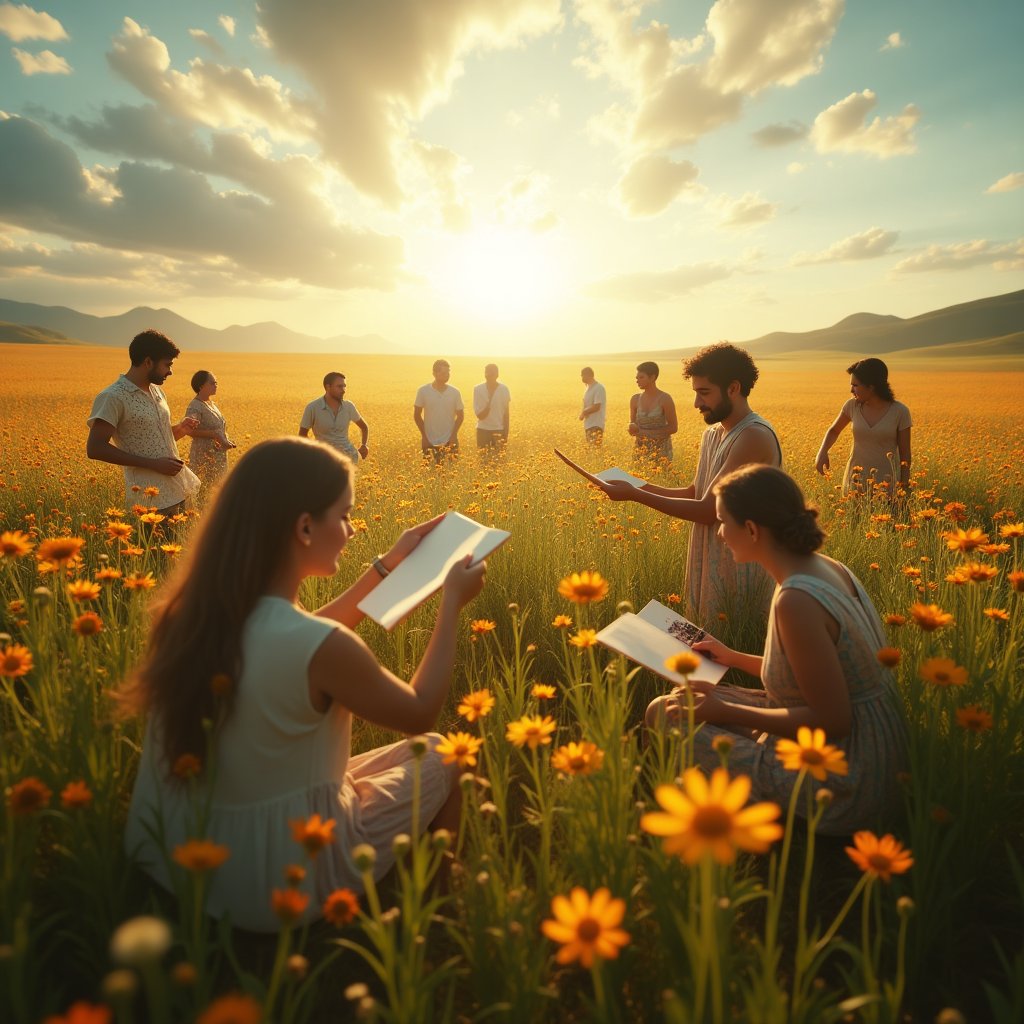
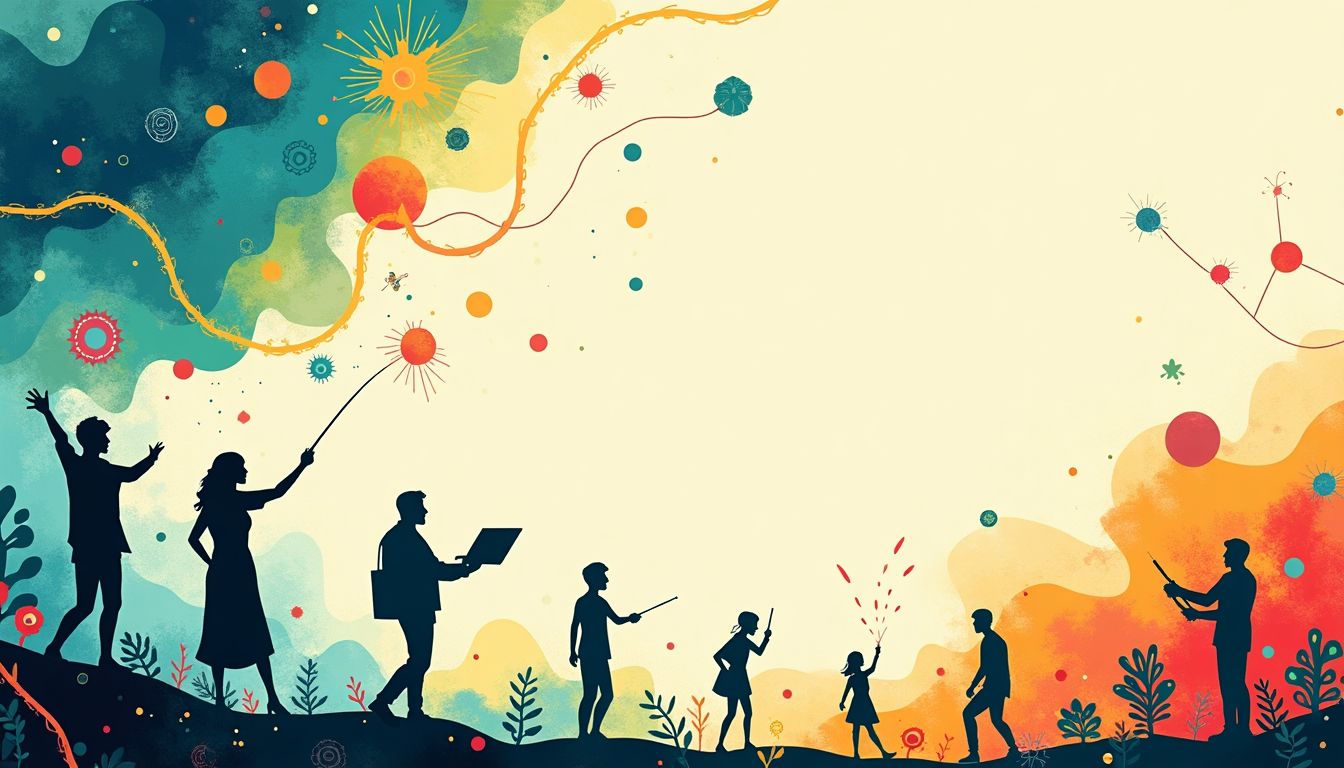
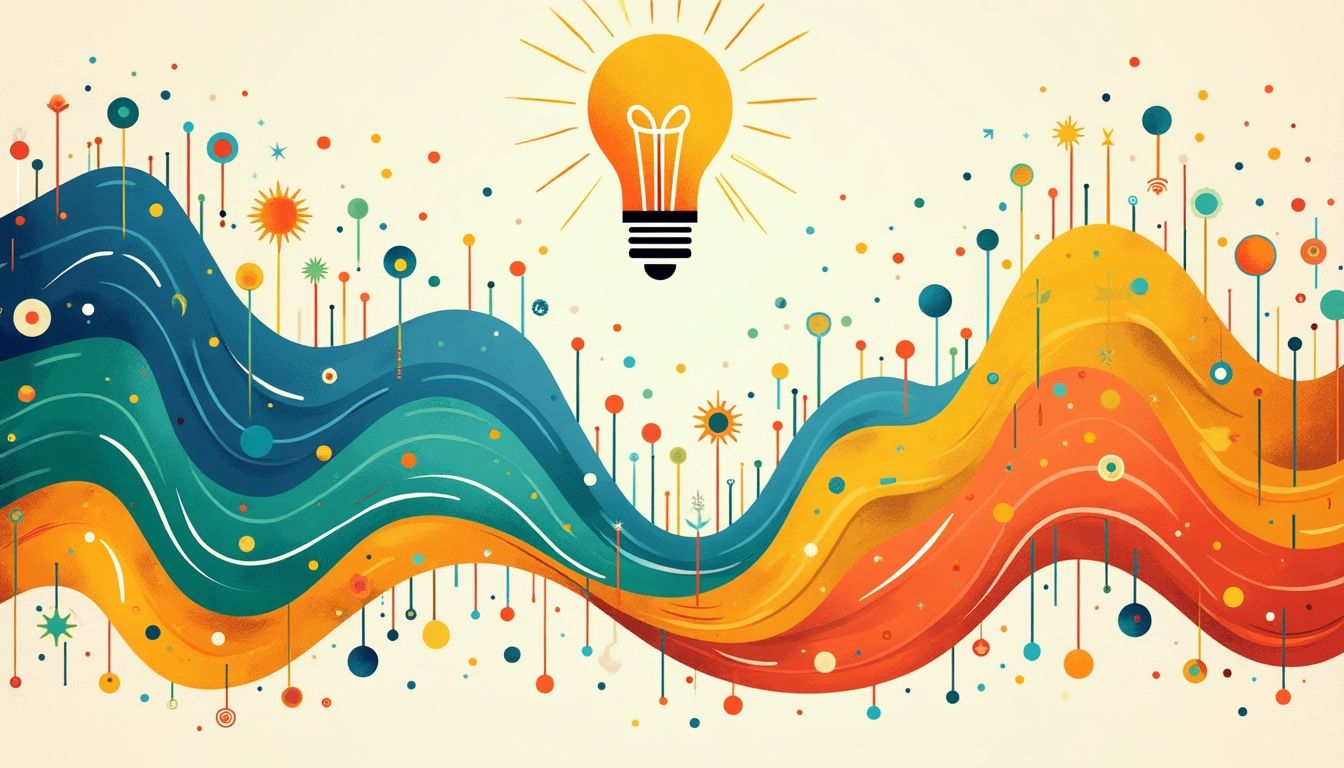
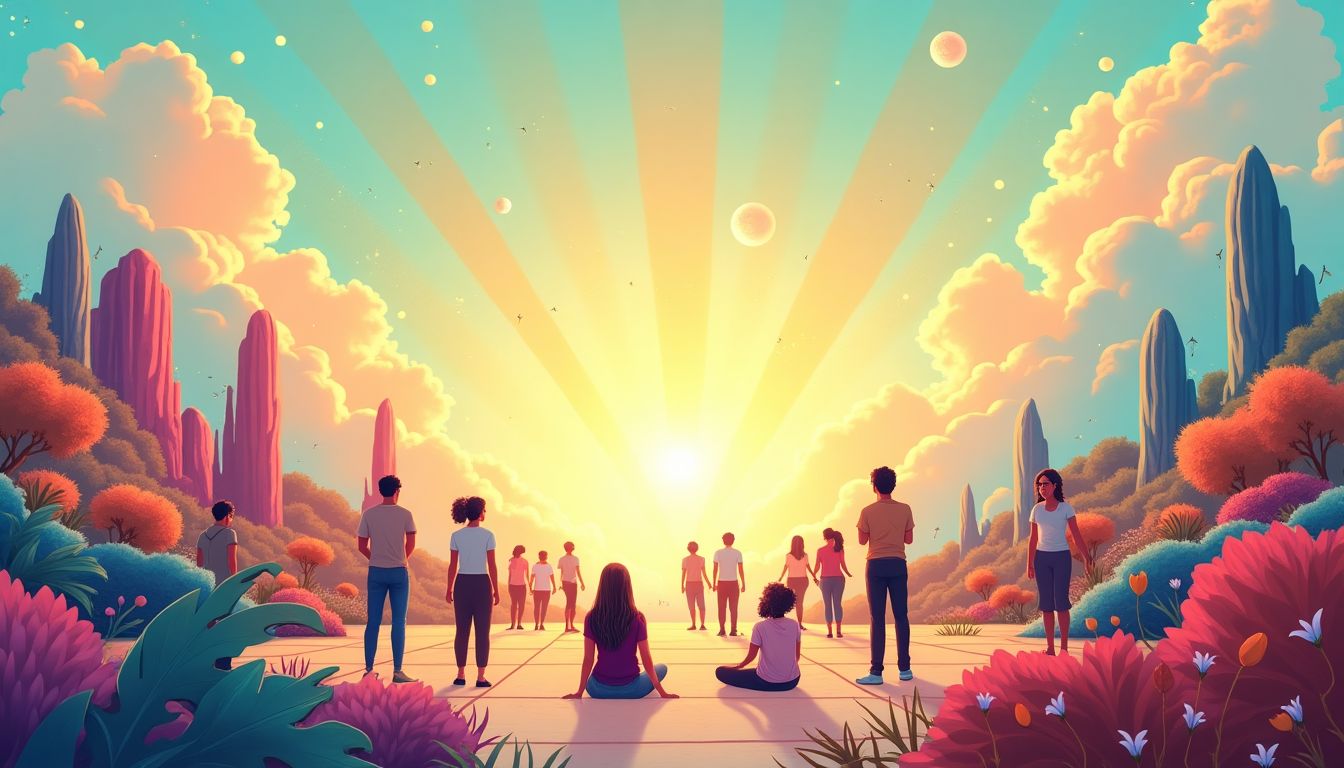
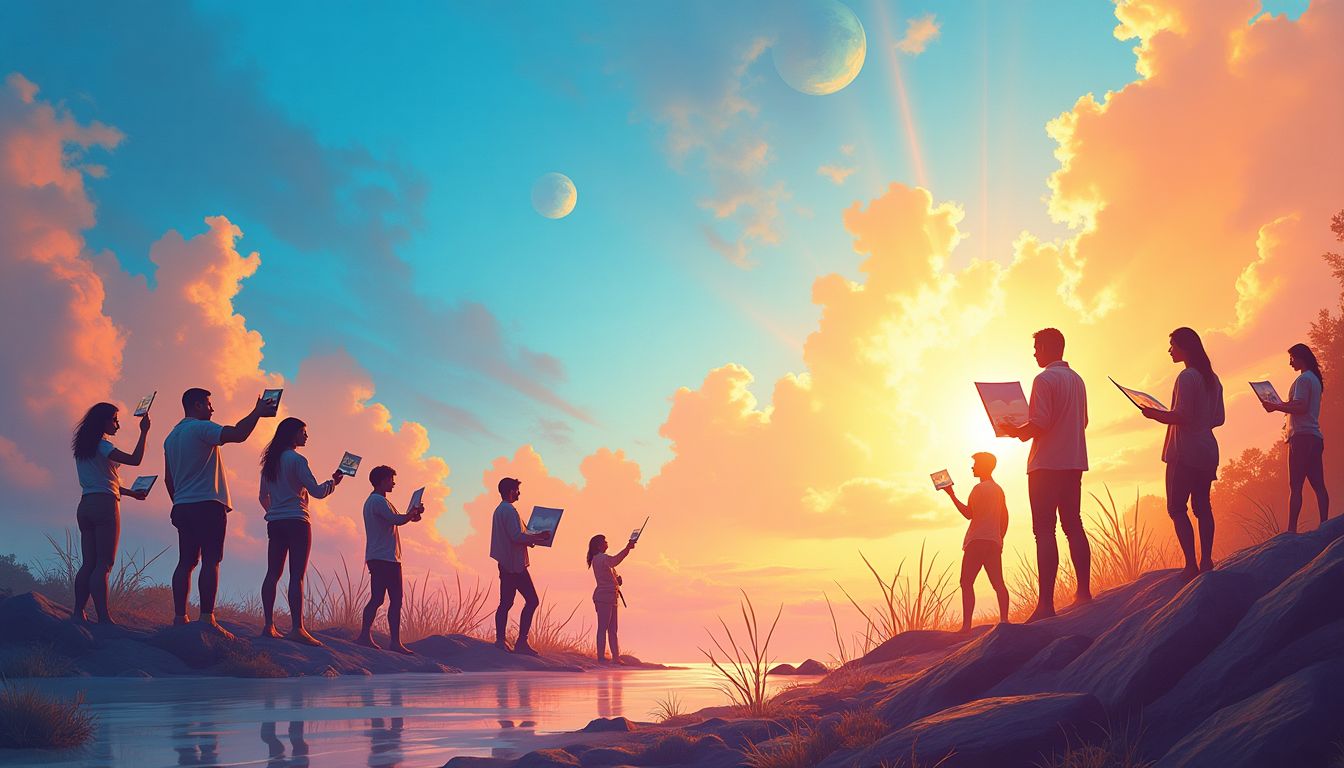
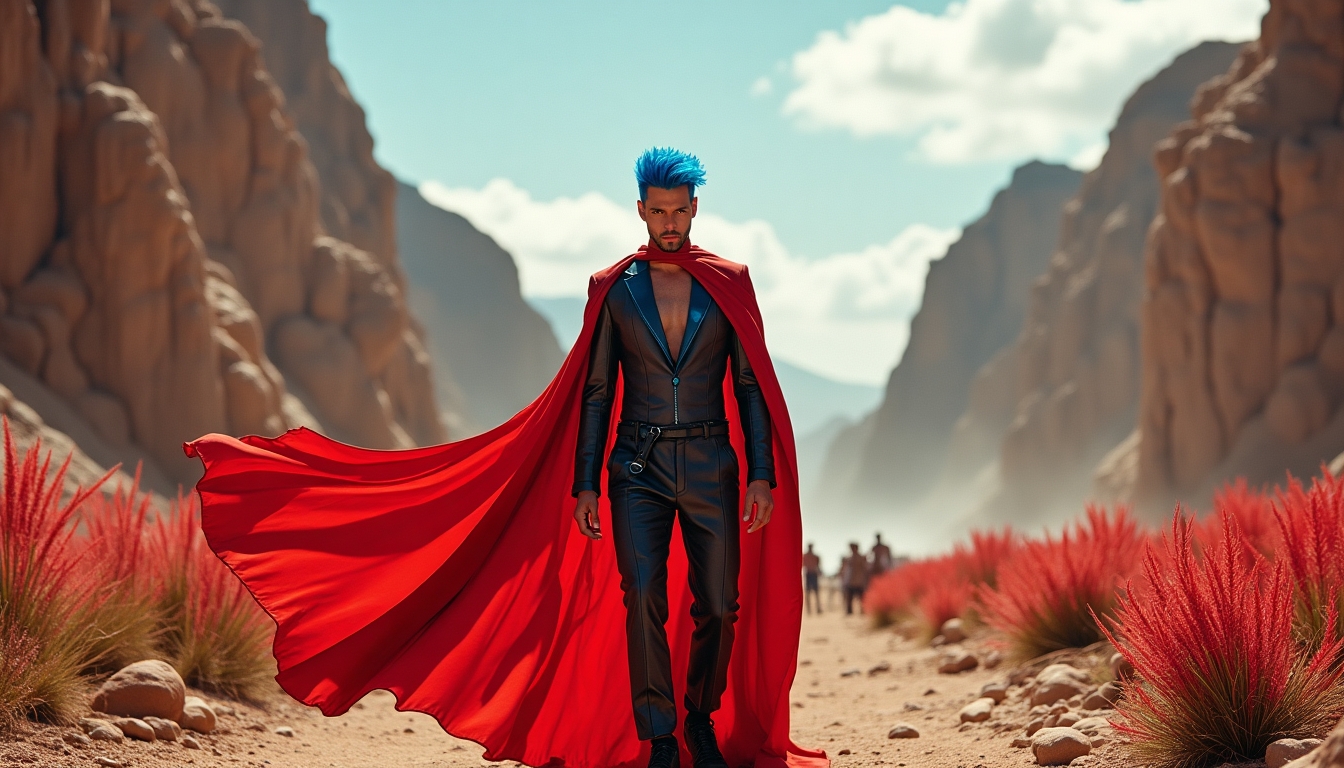





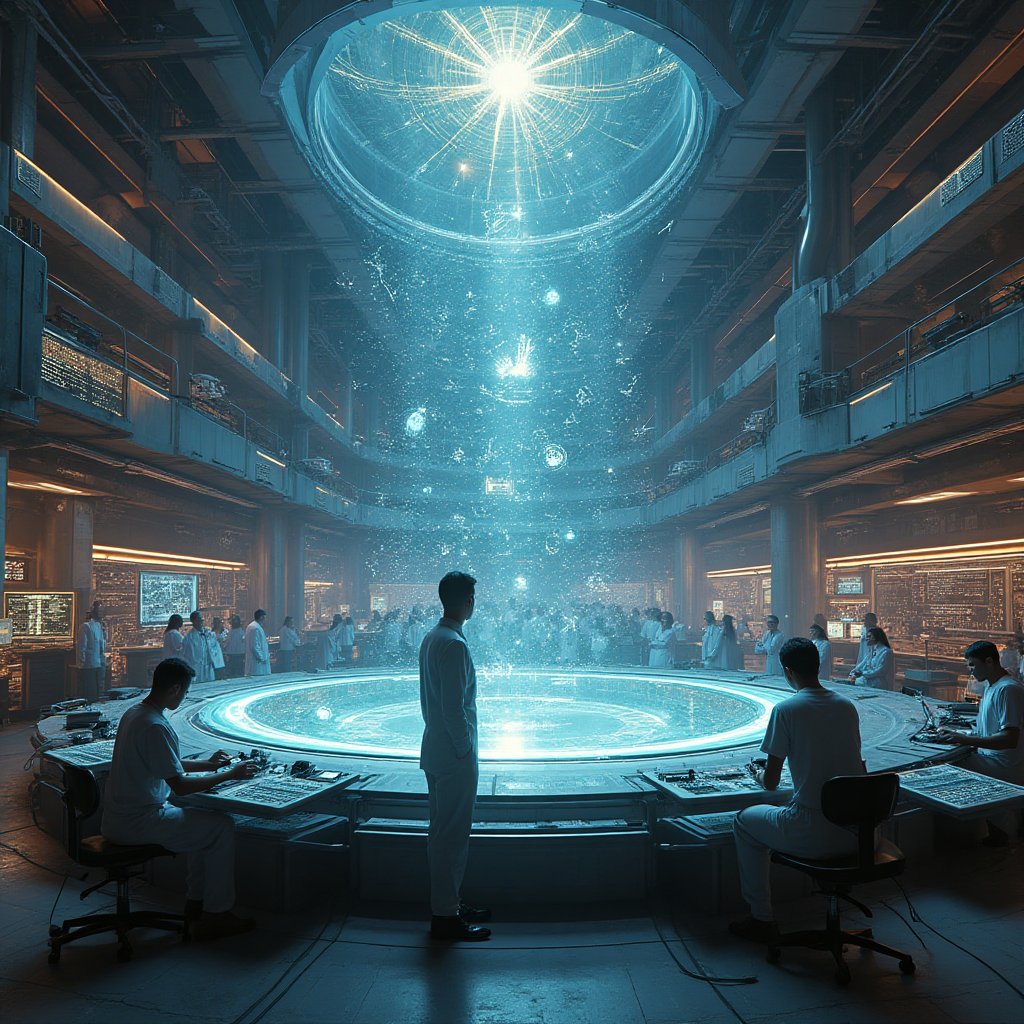
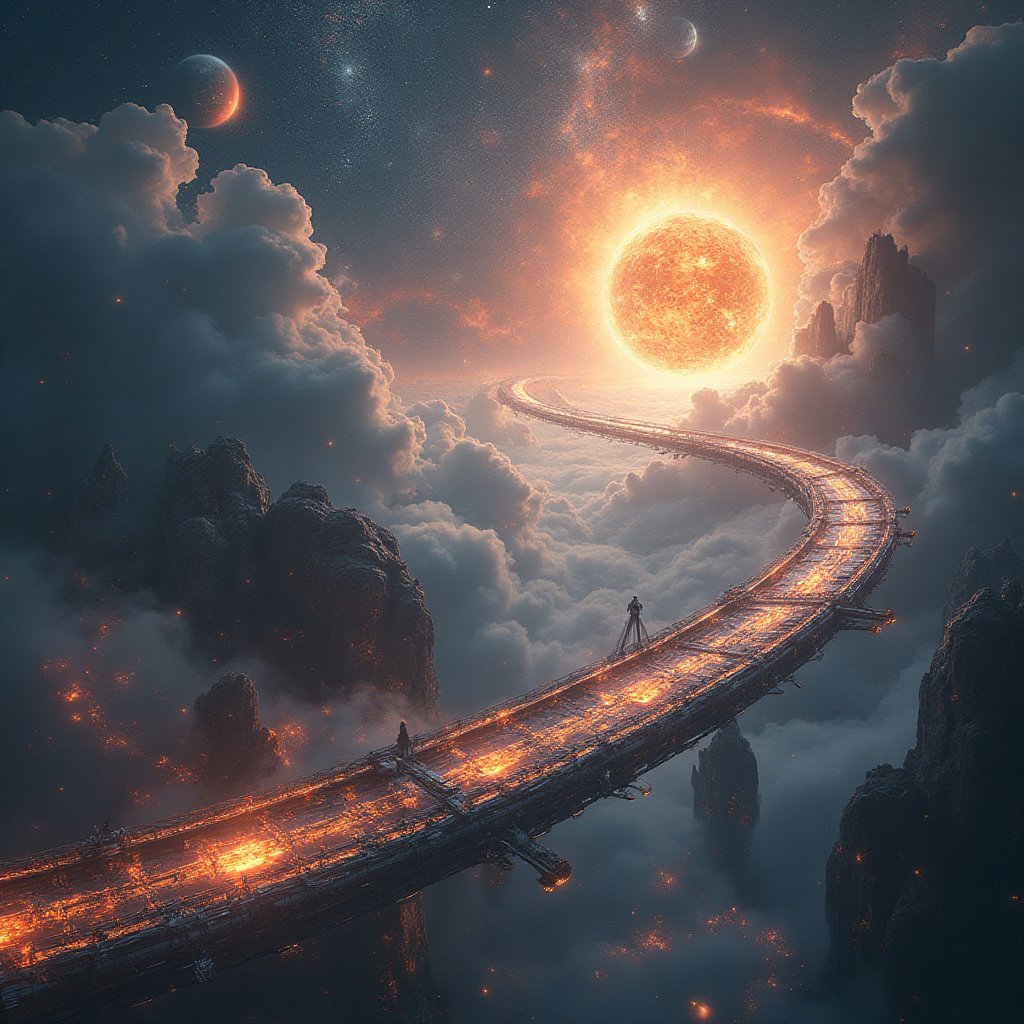
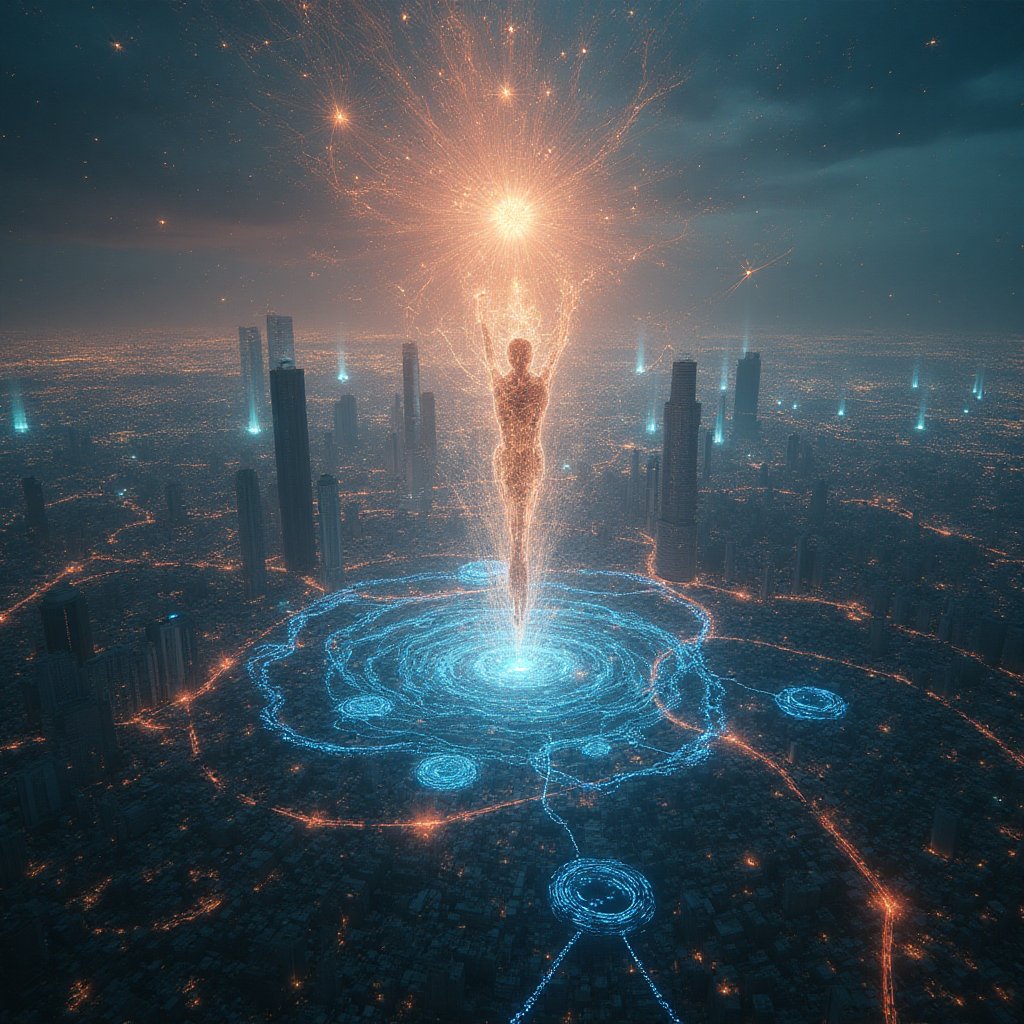















1 comment